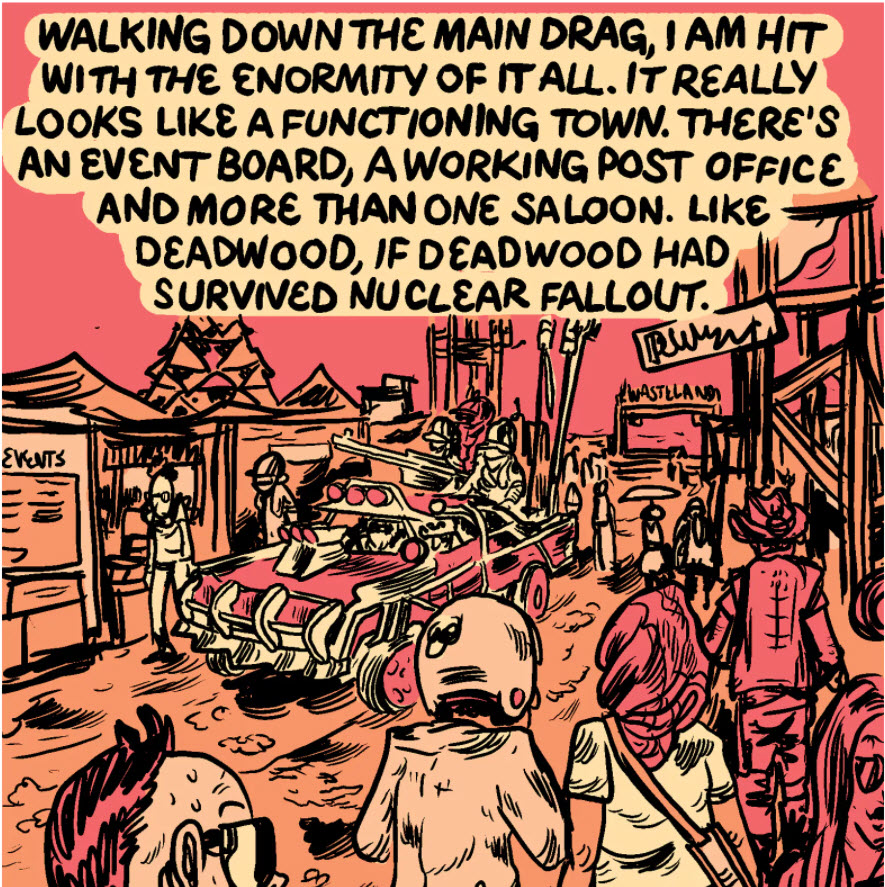People think that being terse makes good technical writing, especially in instructions, and even demanded in Army documentation.
- Concise is good. Conciseness is leaving out unnecessary words.
- Terse is bad. Terseness is when you leave out necessary words but the reader is supposed to be able to figure it out anyway.
You see terseness when the instructions leave out “the.” For example a recipe might say, “Pour flour into bowl.” In the context, both the flour and the been have been mentioned, so the reader is expected to understand what the instruction means.
This doesn’t always work, and besides, it’s not smooth to read. Hence this Diamond Lil:
Now in this comic, the missing word isn’t “the,” but you get the idea.
The rule: don’t assume your reader knows what you’re writing about.

 This is most of one panel from a longish narrative about a visit to a post-apocalyptic—well, here’s the link. Not my kind of adventure, but at least he got “enormity” right.
This is most of one panel from a longish narrative about a visit to a post-apocalyptic—well, here’s the link. Not my kind of adventure, but at least he got “enormity” right.